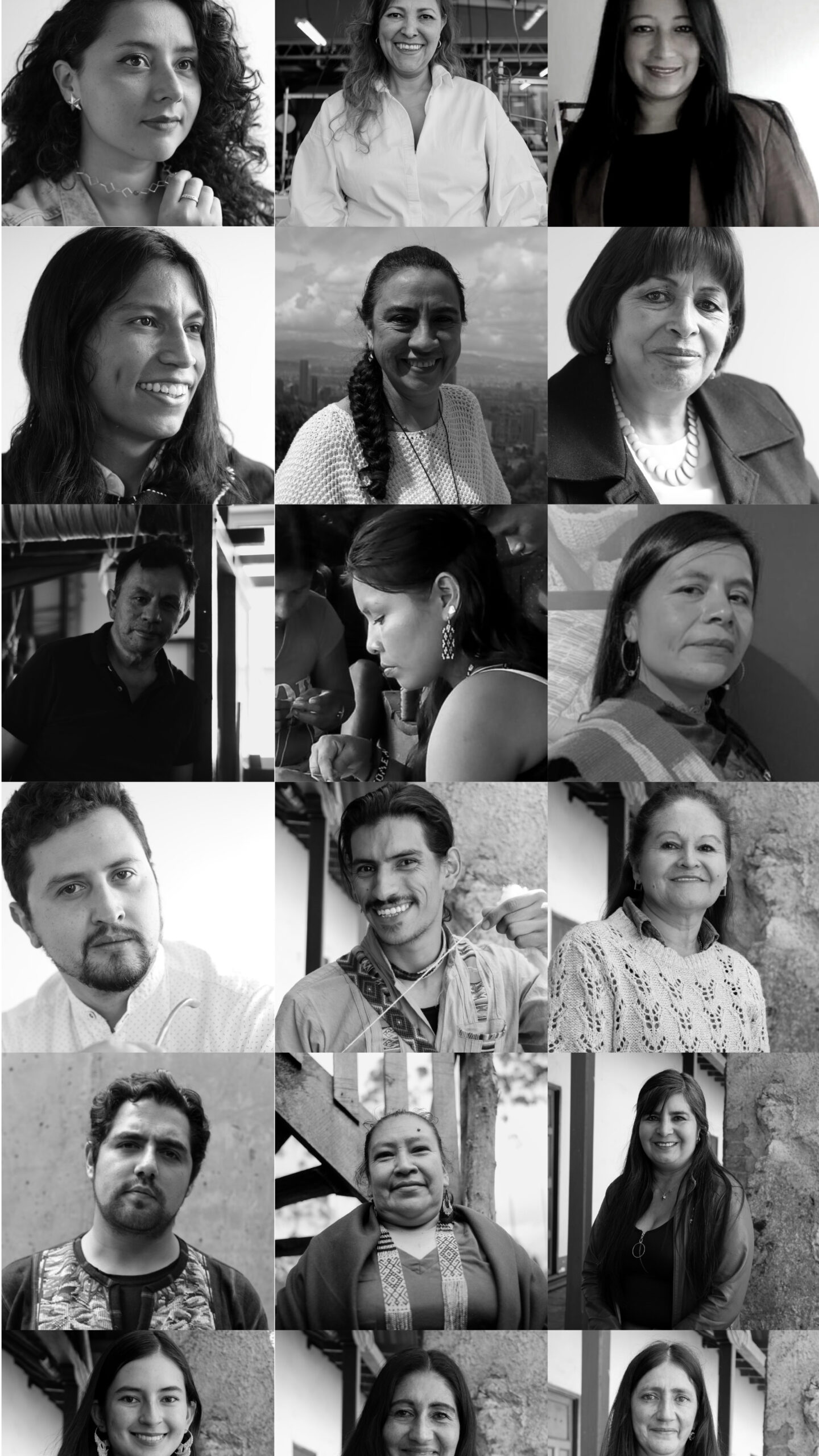
maz 360° DEGREE
HOLISTIC SUSTAINABLE PROCESS
At MAZ, sustainability is not a trend, it is the foundation of our practice and purpose
For over 10 years, we have worked hand in hand with artisan communities across Colombia to develop a model that goes beyond environmental responsibility, focusing equally on cultural preservation, social equity, and economic autonomy.
Our team is made up mostly of women heads of household, along with indigenous and traditional artisans from eight regions of Colombia. We exist to support artisanal groups by providing tools for growth, visibility, and long-term impact. To date, more than 850 artisan families have been directly supported through our work.
We operate under what we call the 360 Degree Holistic Sustainable Process,an innovative framework we have built on five interconnected pillars: Self-Sustainability, Artisanal Networking, Education and Pedagogy, Creative and Textile Laboratories and High-Quality Product and Service Development. These pillars feed into one another, forming a living cycle that empowers artisans, strengthens their communities, and redefines how fashion and art can contribute to a more just and sustainable future.
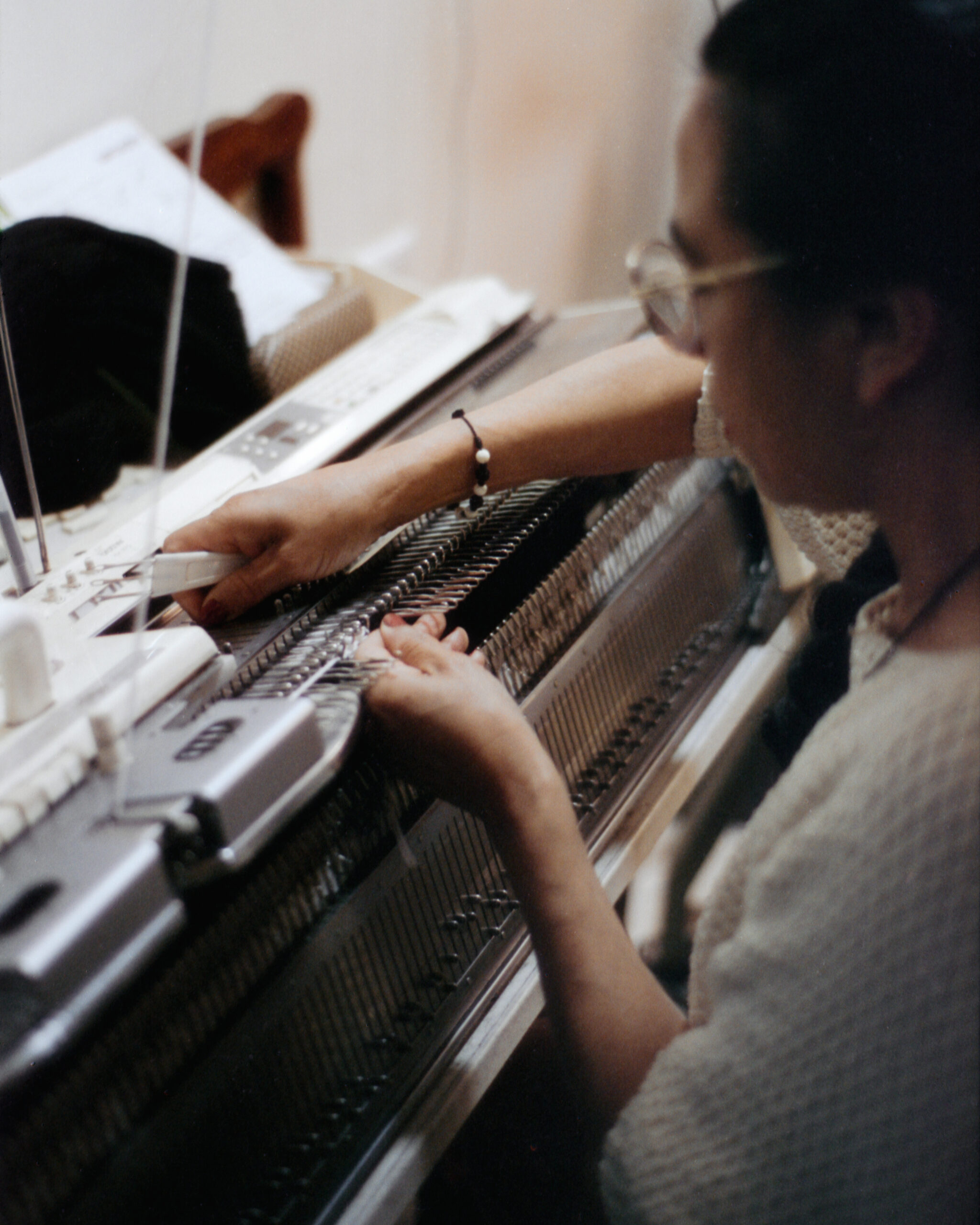
* Image: documentation of Sagrario Mora, master artisan in manual knitting machine work, during the development of the Raíz de Fénix collection by adidas x MAZ.
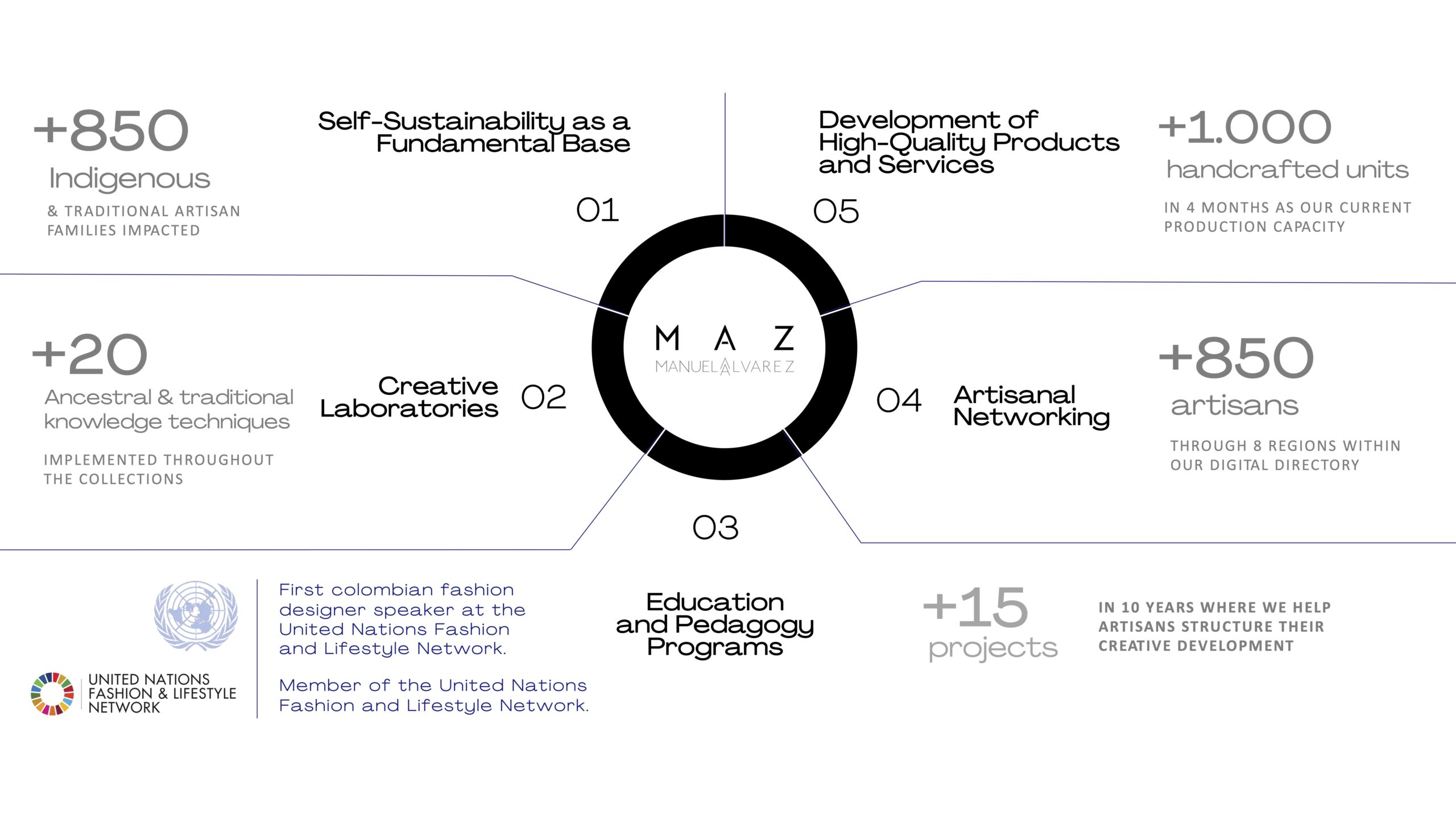
360° DEGREE
M A Z H O L I S T I C S U S T A I N A B L E
P R O C E S S

*Image: Manuela Álvarez (right) at the United Nations Fashion & Lifestyle Network Annual Meeting, with Kerry Bannigan (center), President of PVBLIC Foundation, and Abrima Erwiah (left), co-founder of Studio 189.
MAZ AT THE UNITED NATIONS
FIRST COLOMBIAN FASHION DESIGNER SPEAKER AT THE UNITED NATIONS FASHION AND LIFESTYLE NETWORK
Our Creative Director, Manuela Álvarez, participated in the Annual Meeting Panel Reducing Inequalities Through Sustainable Fashion, in a dialogue on gender equality and innovation hosted by the United Nations Office. From her leadership at MAZ, she shared the brand’s commitment to sustainability, artisan collaboration, and the power of fashion as a tool for social transformation. This participation reaffirms MAZ Manuela Álvarez as a proud member of the United Nations Fashion and Lifestyle Network.

SELF-
SUSTAINABILITY
AS A FUNDAMENTAL BASE
At the heart of the process lies self-sustainability, which we understand as the first step towards genuine sustainability. We firmly believe that there can be no sustainability without self-sustainability. This means that, for an artisan and their community to be sustainable, they must meet not only their basic needs but also develop their talents and capabilities.
By understanding and harnessing their skills, these individuals can find ways of living that are not only dignified but also enriching. This not only improves their quality of life but also strengthens their families and communities, creating a multiplying effect in the region.







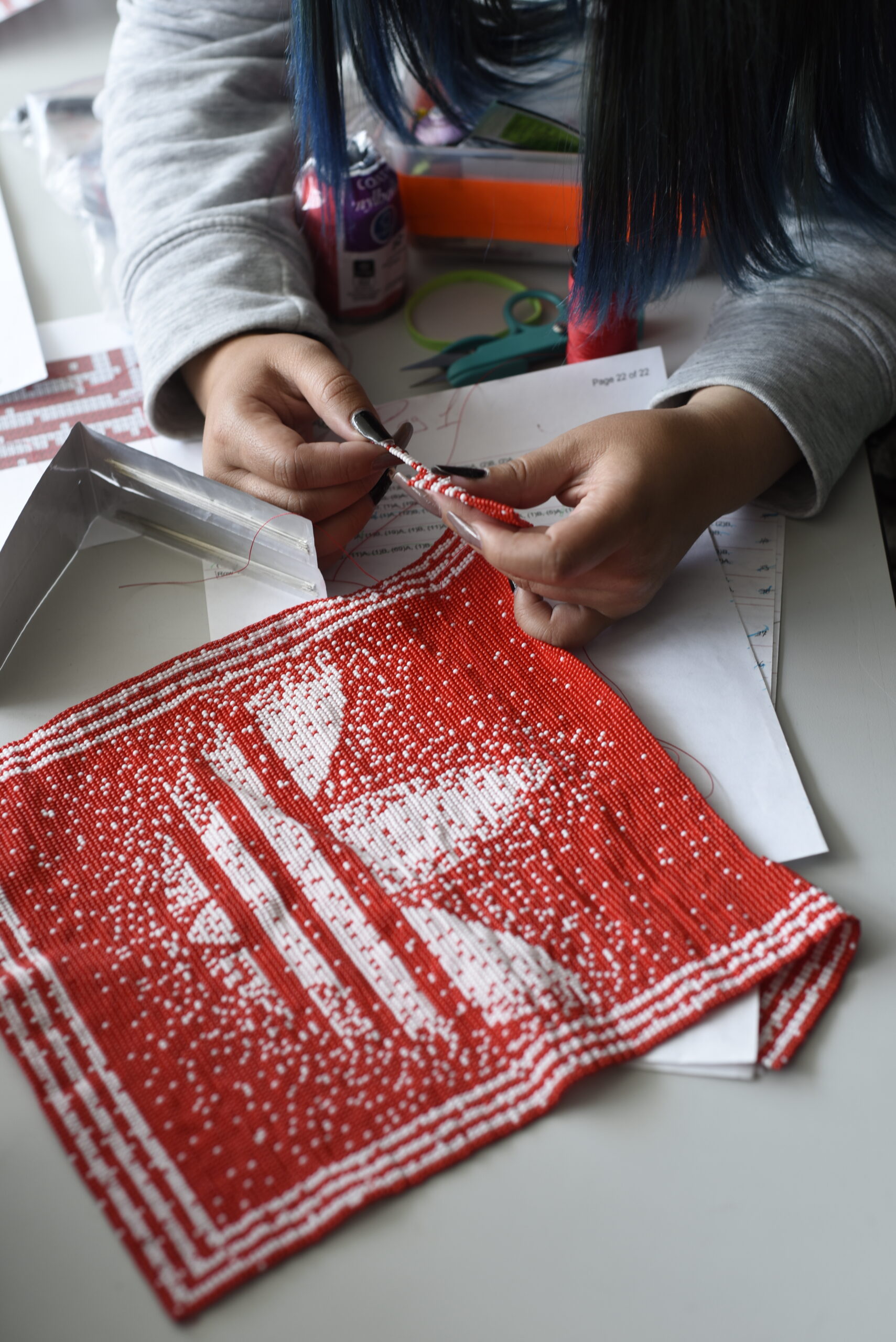
INCOME GROWTH
1
INCOME GROWTH
At MAZ, we understand that true sustainability goes beyond the piece: it must also be reflected in the lives of the people who make it possible. That’s why we actively measure and listen to the impact of our model on the artisan communities we work with. In the first half of 2025, we conducted a survey with our artisan collaborators to understand how their income has increased since working with MAZ Manuela Álvarez. The results show a clear outcome:
On average, artisans reported a 60% increase in their income since joining our network.
Importantly, this figure doesn’t only reflect the work directly provided by MAZ. It also includes new opportunities that artisans have received from other designers, creative studios, and cultural institutions, thanks to the visibility and credibility that MAZ provides. Through our Artisan Directory and an open, transparent approach to sharing our network, we ensure that artisans are recognized as creative leaders and specialists in their fields. Our collaborations are not extractive; they are designed to expand visibility, multiply opportunities, and foster independence.
This income growth is a result of an ecosystem that works:
a 360° sustainable process that empowers artisans to not only participate, but to lead. It’s proof that a model based on fair pay, transparency, and shared authorship can create lasting economic transformation.

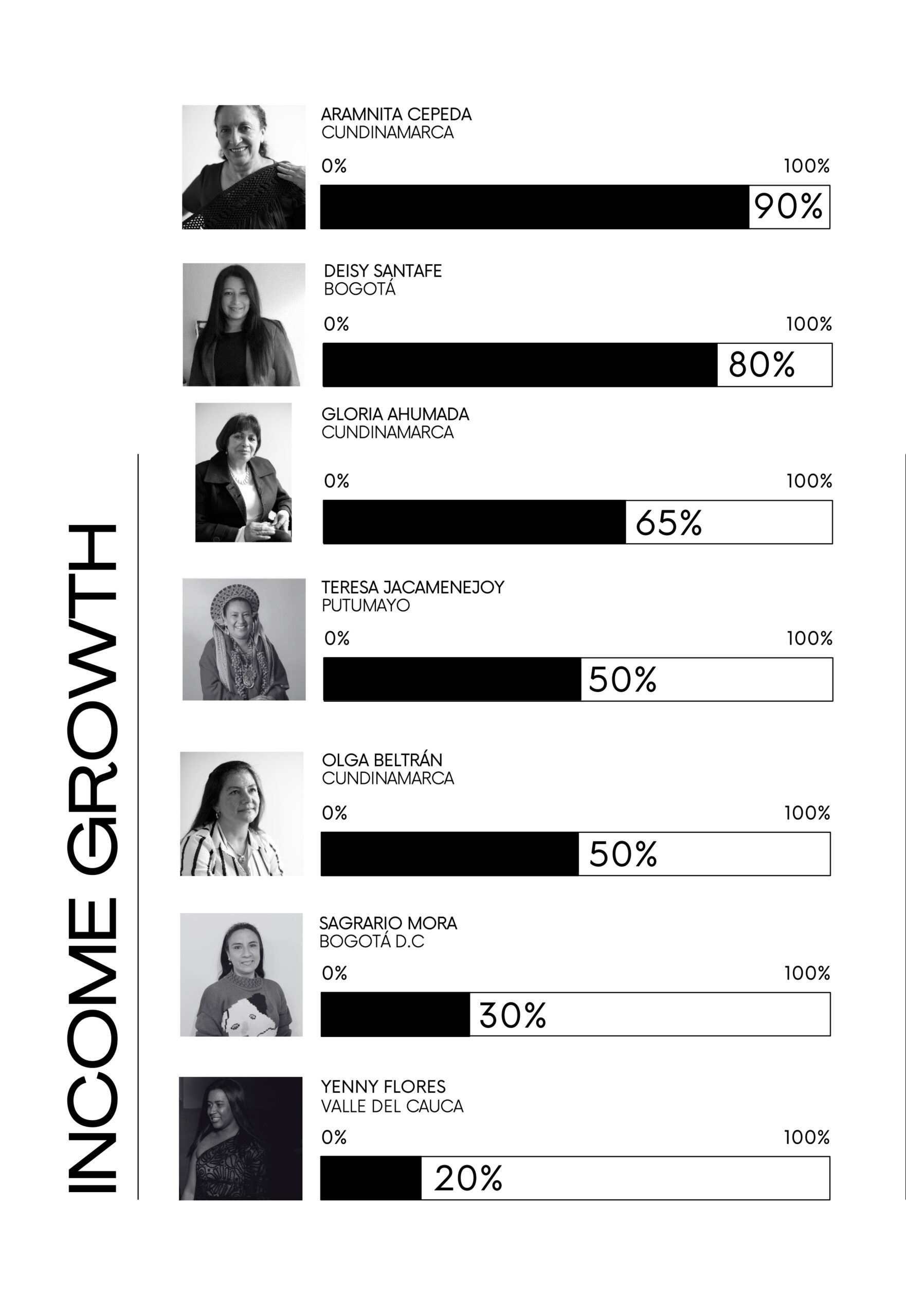
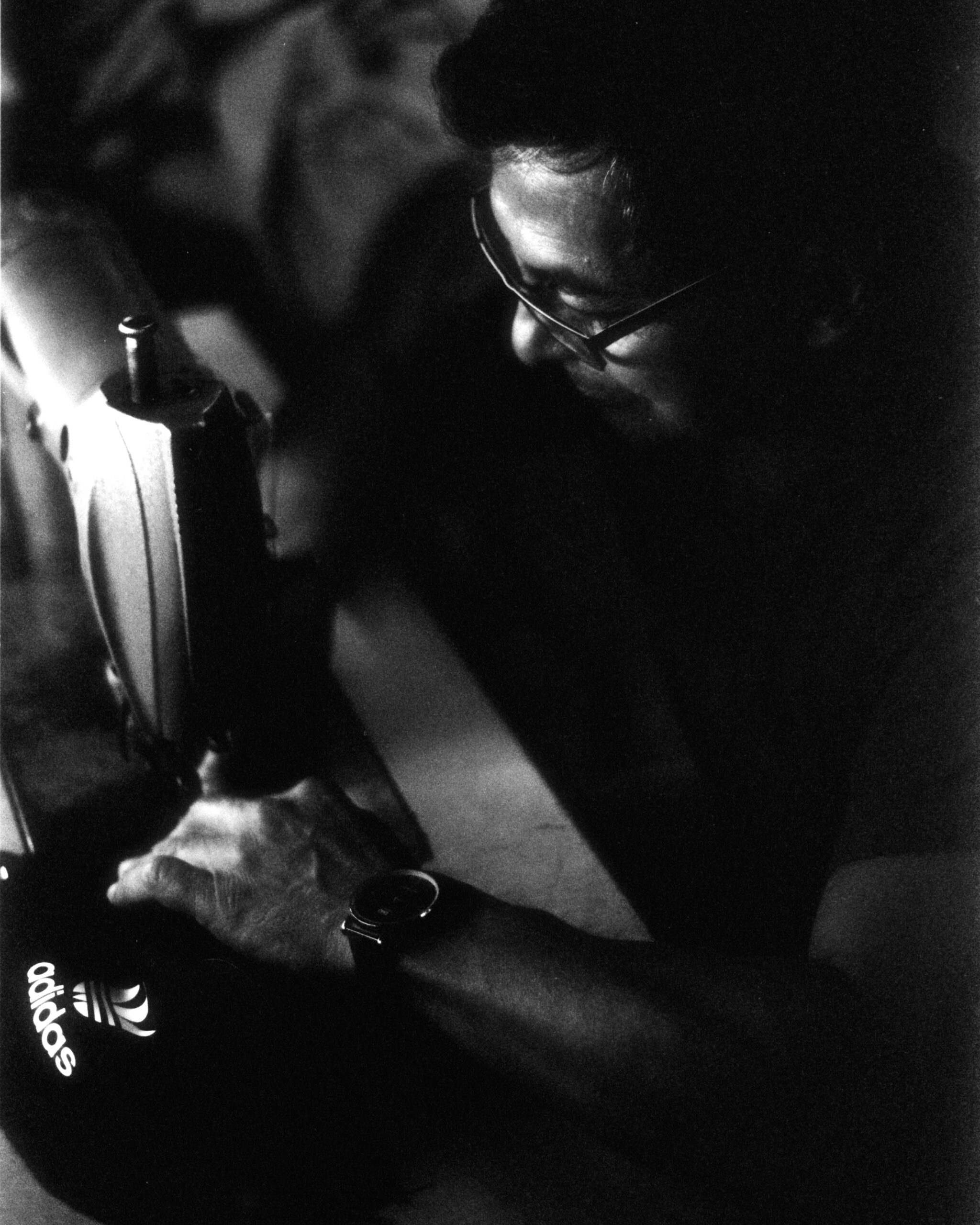
*Image: Luis Ernesto Neme, master artisan of leather molding, working from his workshop in Bogotá on the Raíz de Fénix collection by adidas x MAZ.
+850
IMPACTED INDIGENOUS & TRADITIONAL ARTISAN FAMILIES
On which 80% are women heads of households & 15% are artisan ex-combatants victims of the war.
10
Years of impact
8
Impacted States
+15
Projects
+20
Ancestral & Traditional Knowledge Technics


*Image: Artisan group Tejidos Chakana, weaving the Pechera piece for the Raíz de Fénix collection by adidas x MAZ.
PUTUMAYO
75 ARTISANS
Ancestral knowledge
Guanga (vertical loom) | Bead weaving
Indigenous artisans group
Curarte y Alpamama from Camëntsá Biyá
NARIÑO
60 ARTISANS
Ancestral knowledge
Guanga (vertical loom)
Indigenous artisans group
Hajsu from Los Pastos, Asociación Guanche
CHOCÓ
200 ARTISANS
Ancestral knowledge
Chaquira weaving
Indigenous artisans group
Asociación De Tejedoras de Chaquira de Quibdo from Wounaan Puur & Embera Dobida
BOGOTÁ D.C.
56 ARTISANS
Ancestral knowledge
Leather making & Molding | 2 Meedle weaving | Hand knitting | Beading hand emboridery
Traditional artisans group
Deisy Santafe, Sagrario Mora, Carolina Laguna, Flor Alba Salazar

VALLE DEL CAUCA
100 ARTISANS
Ancestral knowledge
Pata e´ cabra
Traditional artisans group
Calados & Bordados from Cartago, Grupo FUNDAMUJER from Roldanillo
BOYACÁ
200 ARTISANS
Ancestral knowledge
Macramé
Traditional artisans group
Tejidos de Boyacá
SIERRA NEVADA DE SANTA MARTA
6 ARTISANS
Ancestral knowledge
Hand knitting
Indigenous artisans group
Wiwa, Kankuama, Arhuaco
CUNDINAMARCA
147 ARTISANS
Ancestral knowledge
Leather Molding | Vertical and horizontal loom weaving | 2 Needle weaving | Macramé | Crochet | Handcrafted jewelry | Ceramic
Traditional artisans group
Convocatoria Gobernación Cundinamarca Artesanos De La Región

*Image: artisan Veronica Rodríguez Mojica (Saweka), from the Wiwa community of the Sierra Nevada de Santa Marta, during the Cultural Awareness Workshop held in May 2025 at the artisan residency, part of ARTBO (the arts program of the Bogotá Chamber of Commerce).

CREATIVE
LABORATORIES
2
CREATIVE LABORATORIES
MAZ more than a brand, is a creative laboratory
The second pillar, creative laboratories, serves as a space where a universe of possibilities opens up. In these laboratories, the question “What if…?” is encouraged. This approach invites artisans to explore new ways to apply their techniques, materials, and processes. For instance, they are prompted to consider: “What if we use this technique differently?” or “What if we combine different types of fibers and materials?” Through innovation and experimentation, artisans can discover new applications for their work, expanding their creativity and production capacity.


* Image: Artisan from the artisan collective Curarte, led by Eisen Jacanamijoy and Teresa Jacanamijoy in the Camëntsá Biya community in the Sibundoy Valley, Putumayo, during the creative laboratory for the collection adidas x MAZ.

SOPÓ, CUNDINAMARCA
May 2025
In Sopó, Cundinamarca, we launched a creative lab with five master artisans from three regions of Colombia, in collaboration with a Colombian NGO: Casa Social de la Mujer. This ongoing project explores ancestral techniques and material innovation to develop a new collection in progress.

FILBo 2025
INTERNATIONAL BOOK FAIR
April 2025
We held a creative lab in Cogua, Cundinamarca, with 19 macramé artisans to co- create the large-scale mural for Spain, guest country at FILBo 2025 (the second- largest international book fair in Latin America). Together, we explored the meaning of knotting techniques and developed material solutions for large- format macramé, blending tradition, innovation, and collective creation.

ADIDAS X MAZ
October 2024
In 2024, we held a creative lab in the Sibundoy Valley, Putumayo, with the collective Curarte to co-create the beaded adidas trefoil, part of the brand’s first fully handcrafted global collection and its first full collaboration with a Colombian designer.

EDUCATION
AND PEDAGOGY
PROGRAMS
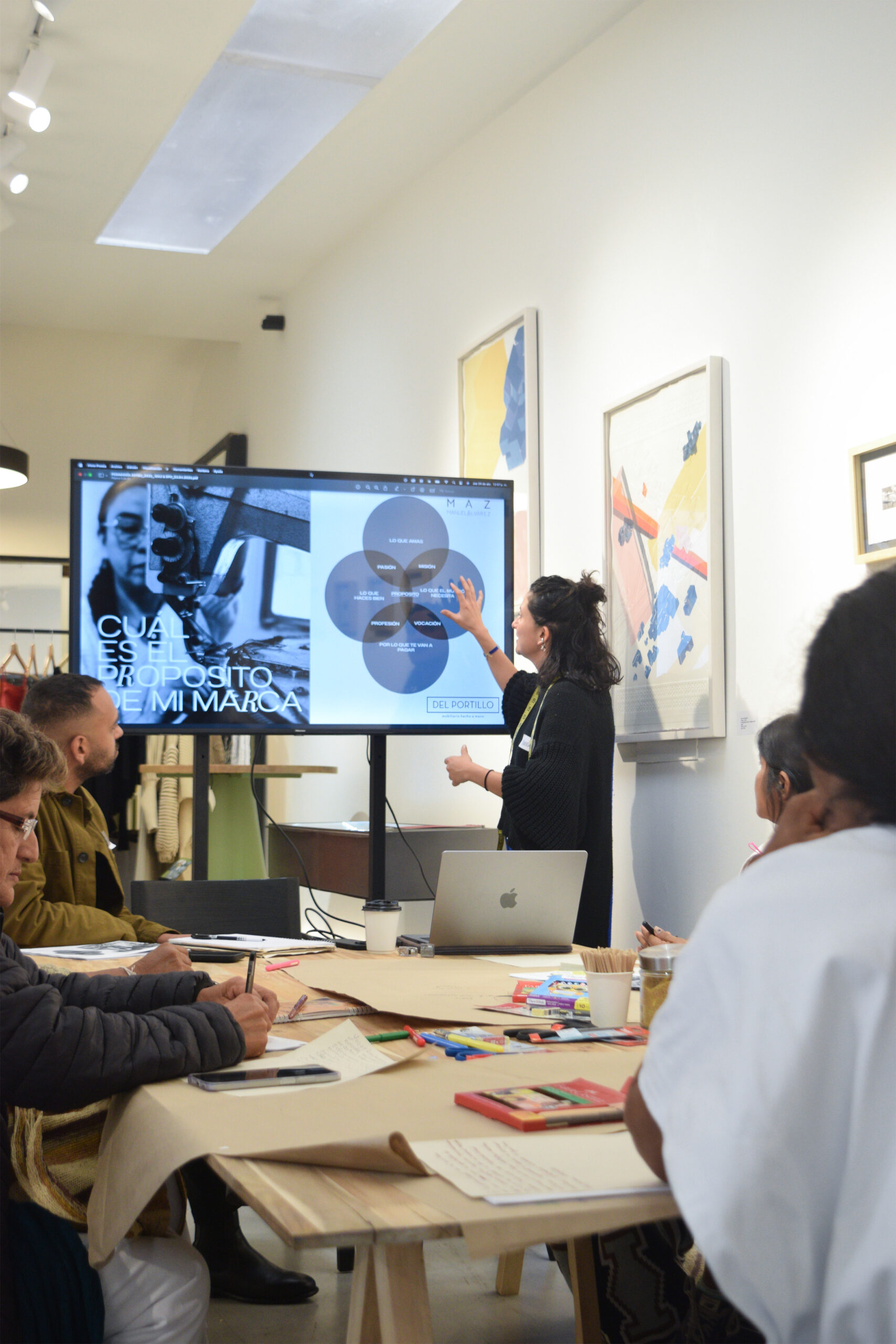
* Image: Our creative director Manuela Álvarez during the Cultural Awareness Workshop held in May 2025 at the artisan residency, part of ARTBO (the arts program of the Bogotá Chamber of Commerce).
3
EDUCATION
AND PEDAGOGY
PROGRAMS
The third pillar refers to the education and pedagogy programs we implement. As a leader in this field, Manuela Álvarez conducts workshops and courses that help artisans structure their creative development. This not only allows them to improve the quality of their products but also helps them define their creative and aesthetic identity.
Through education, artisans learn about collection creation and the importance of understanding their own DNA as artisan brands. This training strengthens their skills and provides them with clear strategies for project development, ensuring they are well-equipped to face the challenges of the contemporary market.
* Cover image of the section: Yudith Pacheco, from the Kankuamo community of the Sierra Nevada de Santa Marta, during the Cultural Awareness Workshop held in May 2025 at the artisan residency, part of ARTBO (the arts program of the Bogotá Chamber of Commerce).

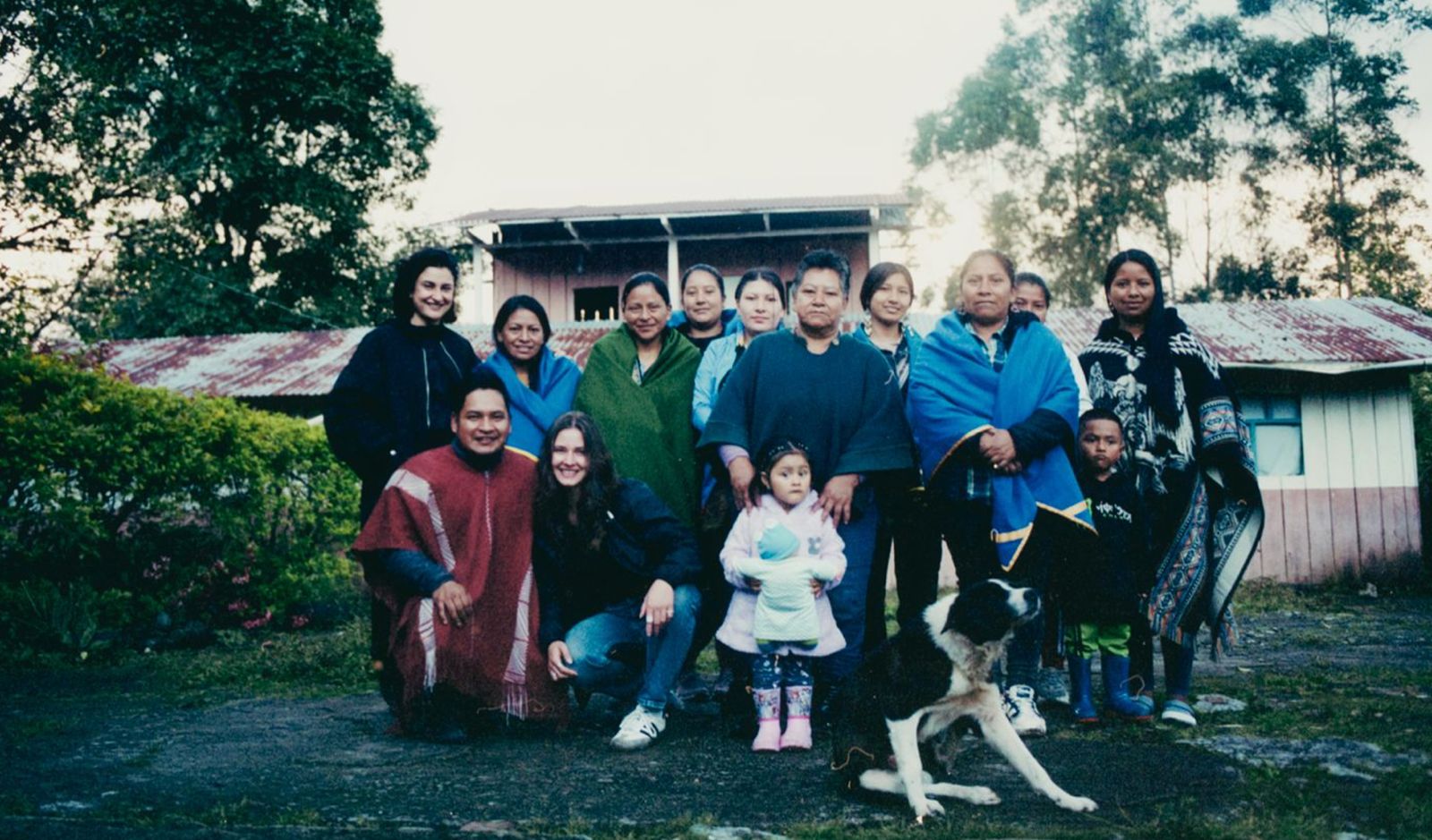
ARTISANAL NETWORKING
4
ARTISANAL NETWORKING
Our fourth pillar, Artisanal Networking, focuses on strengthening relationships across regions, communities, and disciplines. It’s not just about working with artisans — it’s about creating networks of collaboration, mutual learning, and shared authorship.
This system has allowed us to scale responsibly. In response to growing demand from international partners and our own stock needs, we’ve expanded our production capacity from 50 to 300 handcrafted units per month, without sacrificing quality, technique, or ethical standards.
This growth is possible thanks to a pedagogical approach that empowers master artisans to train members within their own communities, ensuring that production expands while maintaining the same standards of excellence, cultural integrity, and care.
Artisanal Networking is about more than production — it’s a strategy for resilience, visibility, and long-term sustainability across Colombia’s rich landscape of craft traditions.
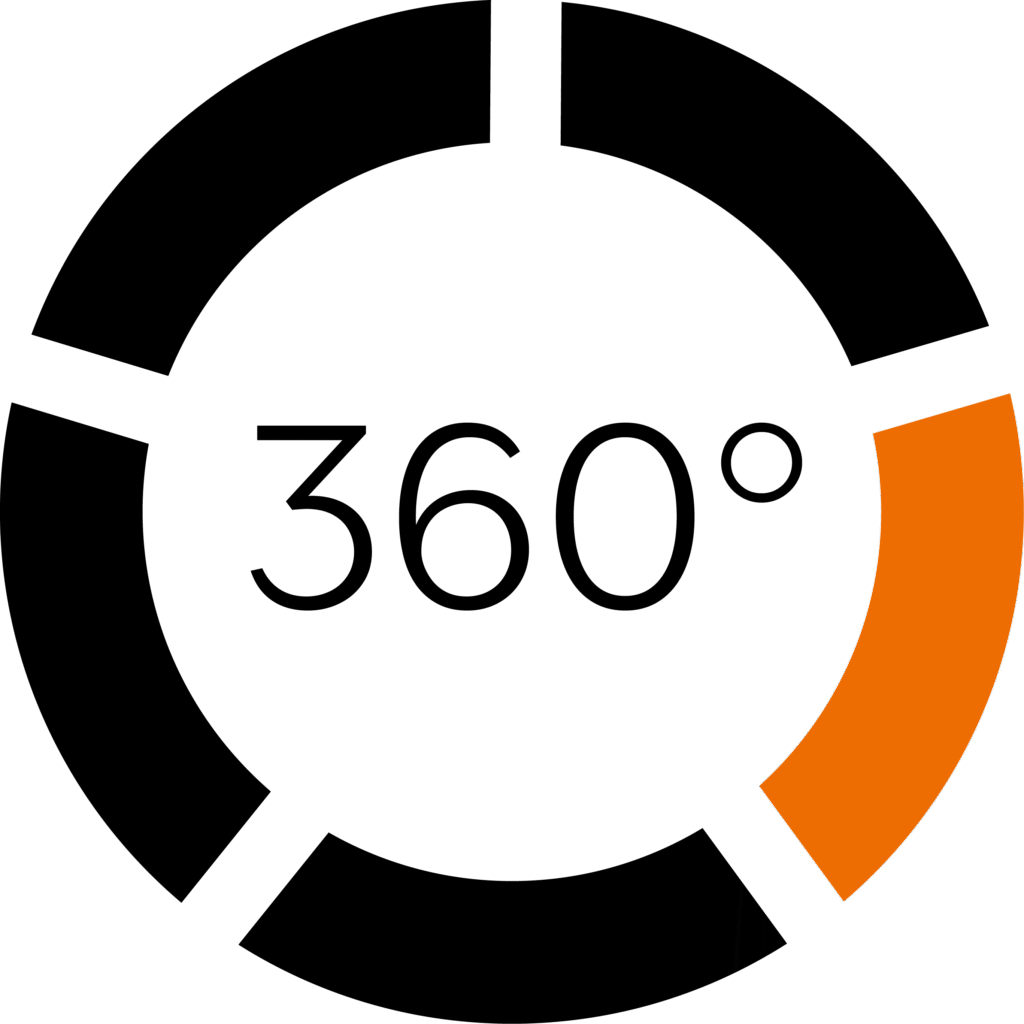
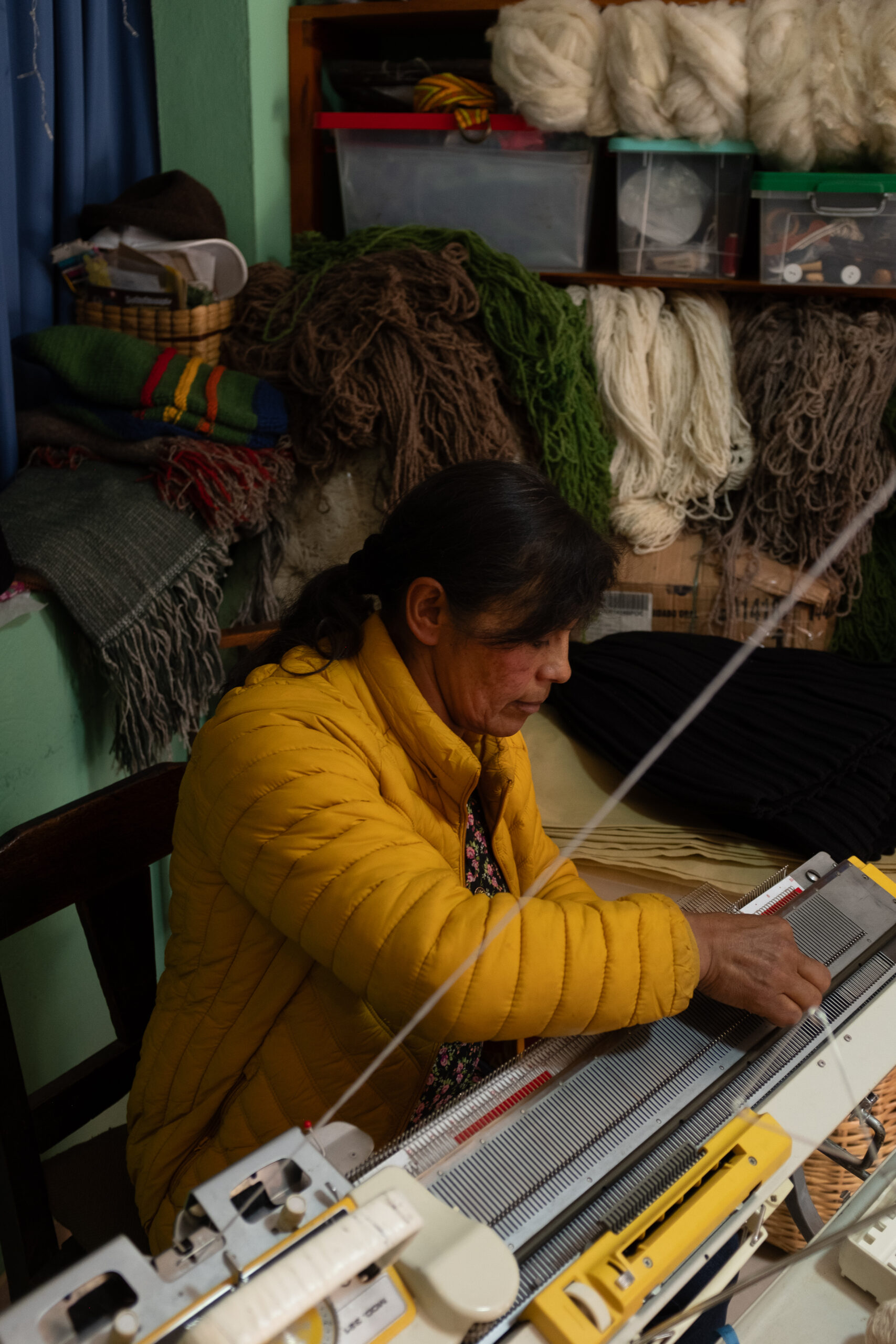
*Image: artisan member of the artisanal group Tejidos Luz María, led by master artisan Luz María Rodríguez in manual knitting machine techniques, working in her workshop in Sutatausa for the Raíz de Fénix collection by adidas x MAZ.
THE ARTISANAL DIRECTORY
We created an Artisanal Directory, a network over 850 talented artisans
As part of our commitment to visibility and fair access, we created the Artisanal Directory — a living network of over 850 talented artisans from across Colombia. This platform increases visibility, provides recognition for master-level craftsmanship, and connects artisans with new job opportunities within and beyond our brand.
Each entry in the directory includes the artisan’s area of expertise, a brief description of their background and work, and their direct contact information, allowing designers, brands, and institutions to reach out to them independently and establish meaningful collaborations.
The directory has become a key tool for connecting artisans with external collaborators, expanding their presence in the creative industries. It has also been instrumental in enabling large-scale projects, including our historic partnership with Adidas — the first fully handcrafted collection by the brand globally, and the first full collaboration with a Colombian designer, launched in early 2025.
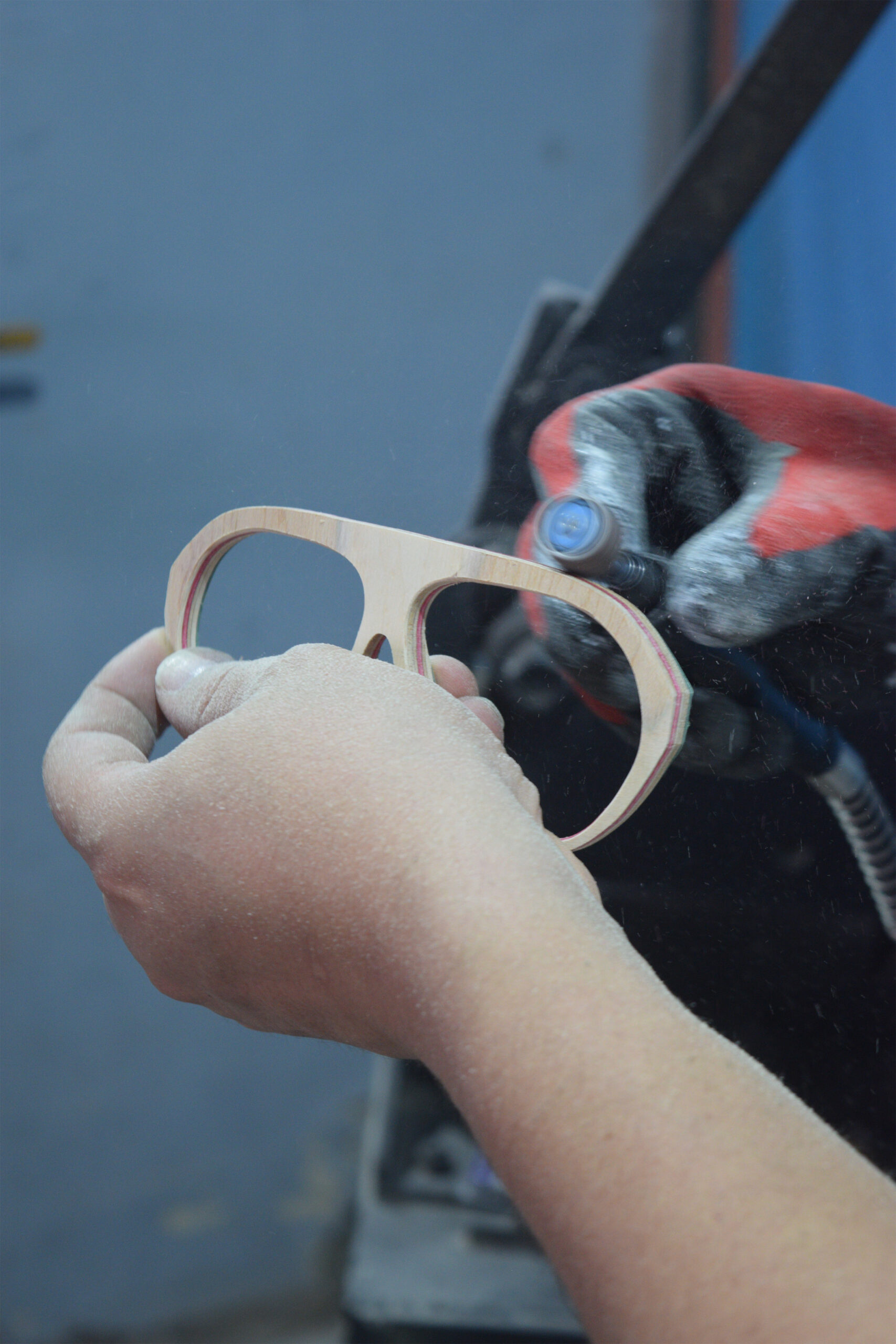
DEVELOPMENT OF
HIGH-QUALITY
PRODUCTS AND SERVICES

5
DEVELOPMENT OF HIGH QUALITY PRODUCTS AND SERVICES
The fifth pillar brings everything to life through the development of high-quality products and services. Here, the goal is to transform the ancestral and traditional knowledge of artisans into a stable and differentiated source of income. This is not limited solely to the production of artisan products but also extends to the provision of related services. Through this diversification, artisans can meet market demand with innovative products that reflect their cultural and technical heritage.
All of this pillars reflect our brand´s commitment to artisanship and artisan development, translated into contemporary applications through high-quality products. These creations merge high-contemporary aesthetics with a sophisticated approach, generating tangible local impact while honoring the roots of traditional knowledge.
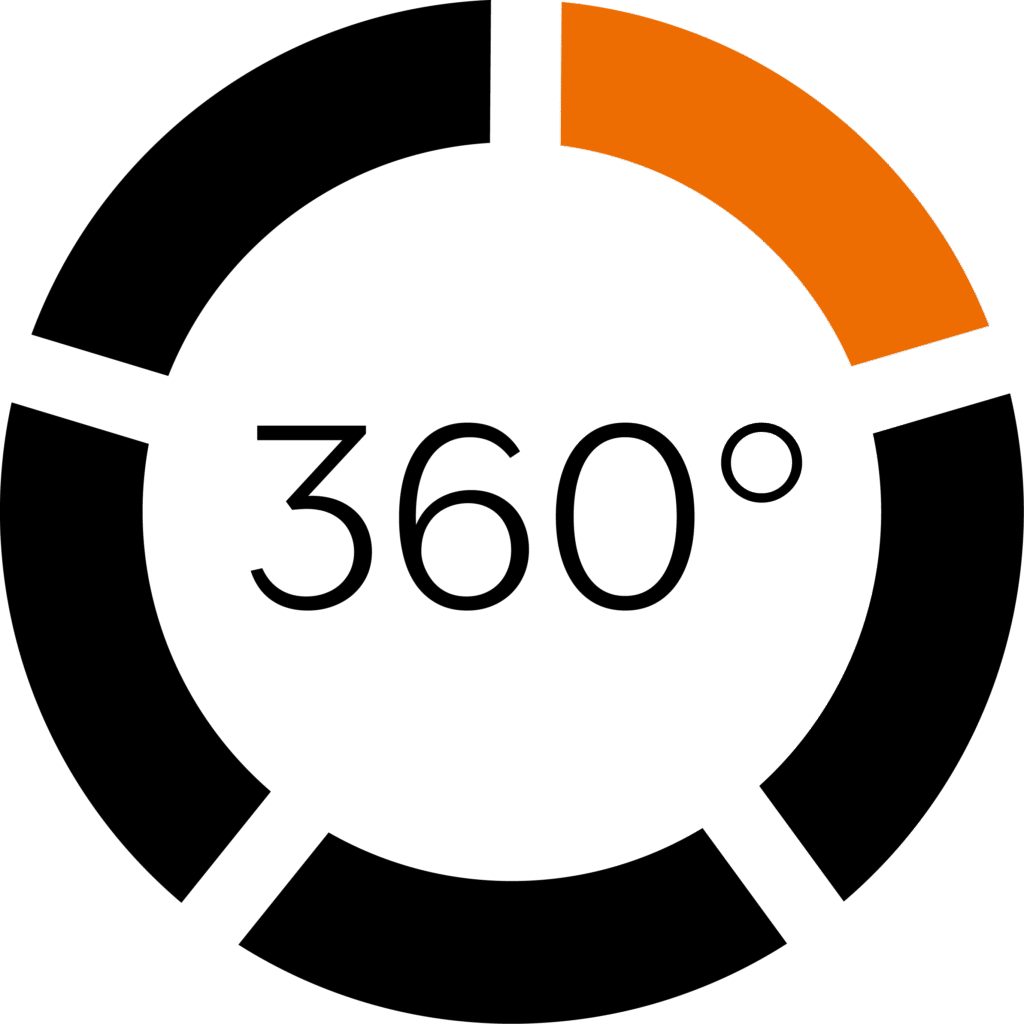
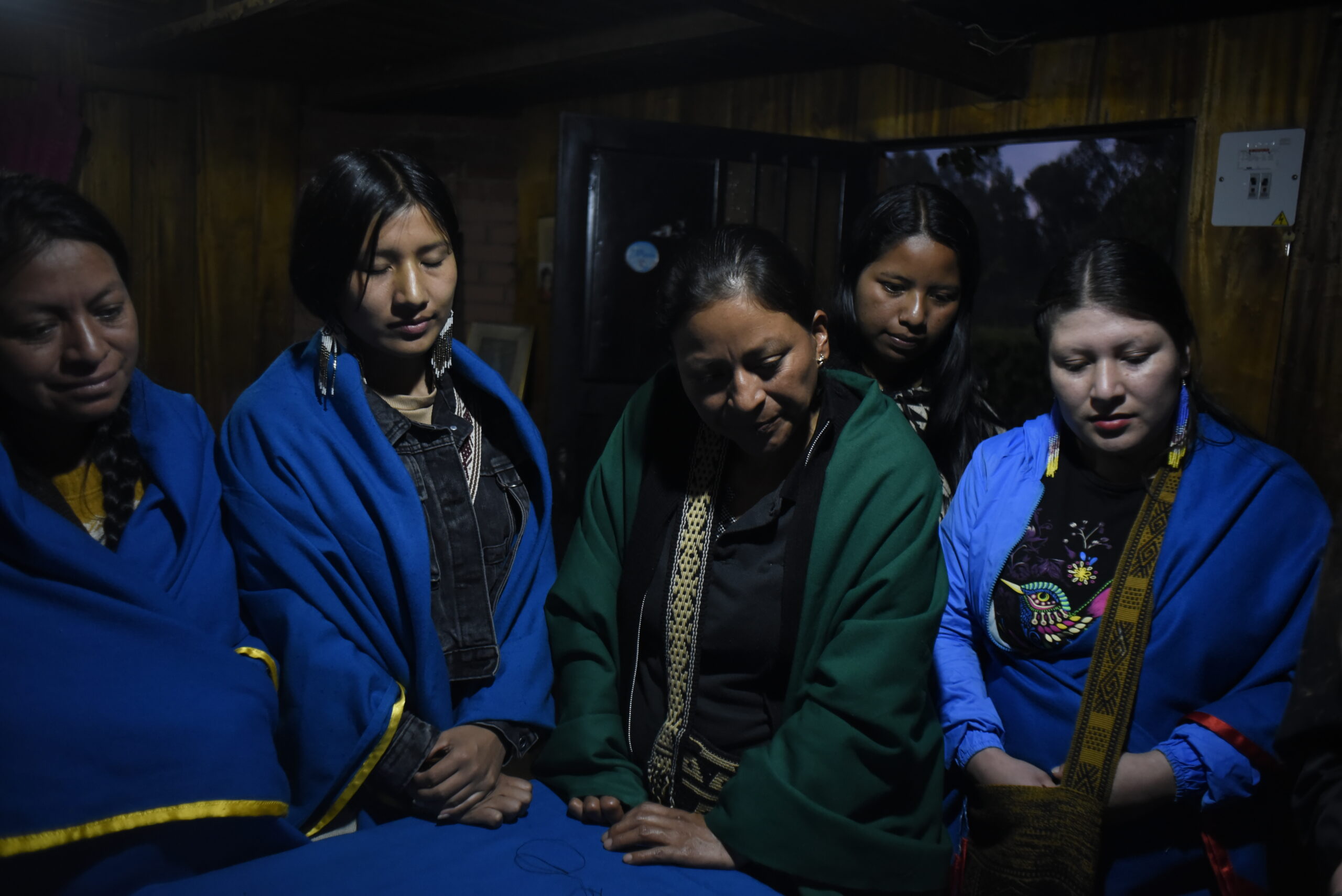
ADIDAS X MAZ
March 2024
In 2024, we held a creative lab in the Sibundoy Valley, Putumayo, with the collective Curarte to co-create the beaded adidas trefoil, part of the brand’s first fully handcrafted global collection and its first full collaboration with a Colombian designer.
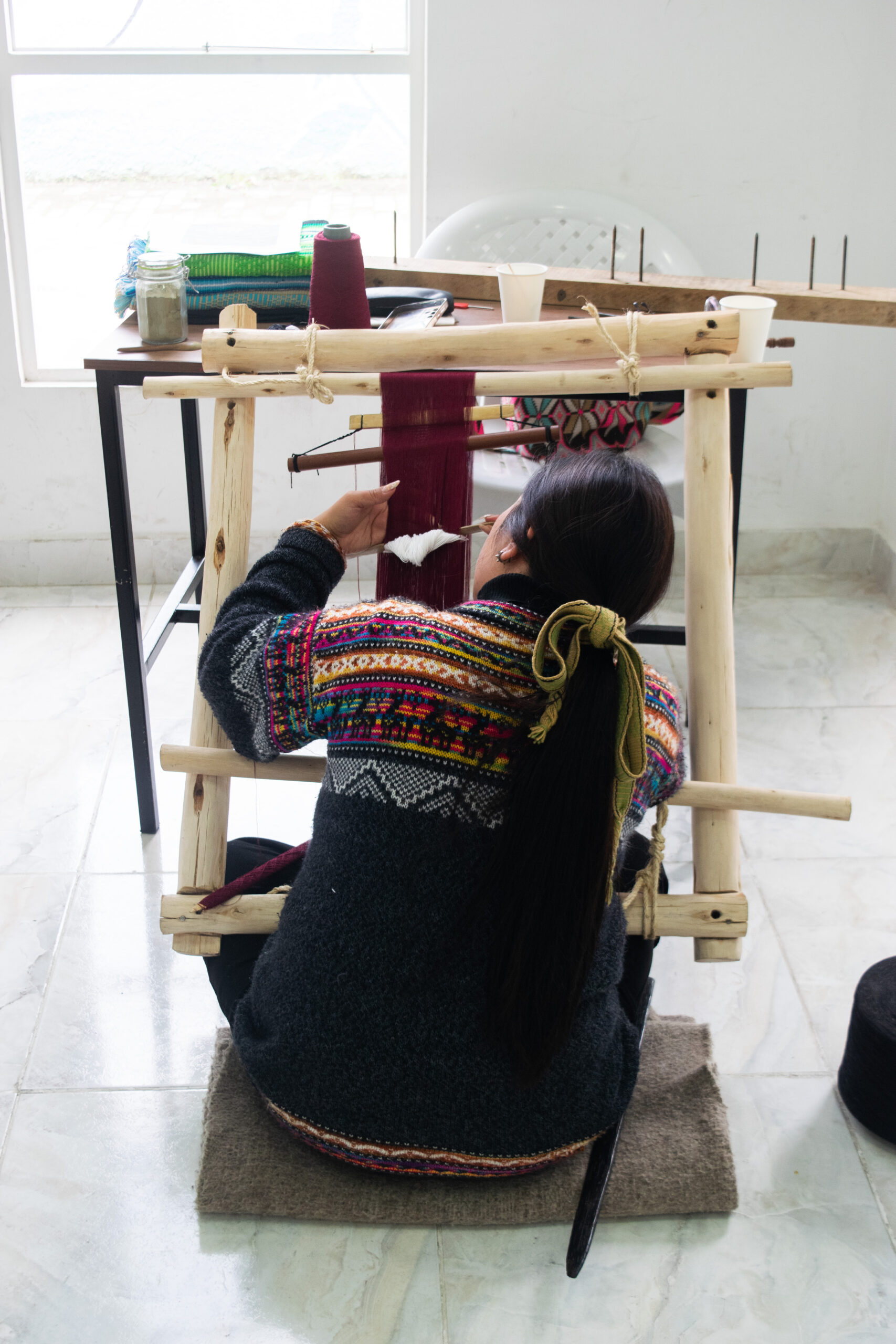
SOPÓ, CUNDINAMARCA
May 2024
In Sopó, Cundinamarca, we did a creative lab with five master artisans from three regions of Colombia, in collaboration with a Colombian NGO: Casa Social de la Mujer. This ongoing project explores ancestral techniques and material innovation to develop a new collection in progress.

FILBo 2025
April 2025
We held a creative lab in Cogua, Cundinamarca, with 19 macramé artisans to co-create the large-scale mural for Spain, guest country at FILBo 2025 (the second- largest international book fair in Latin America).
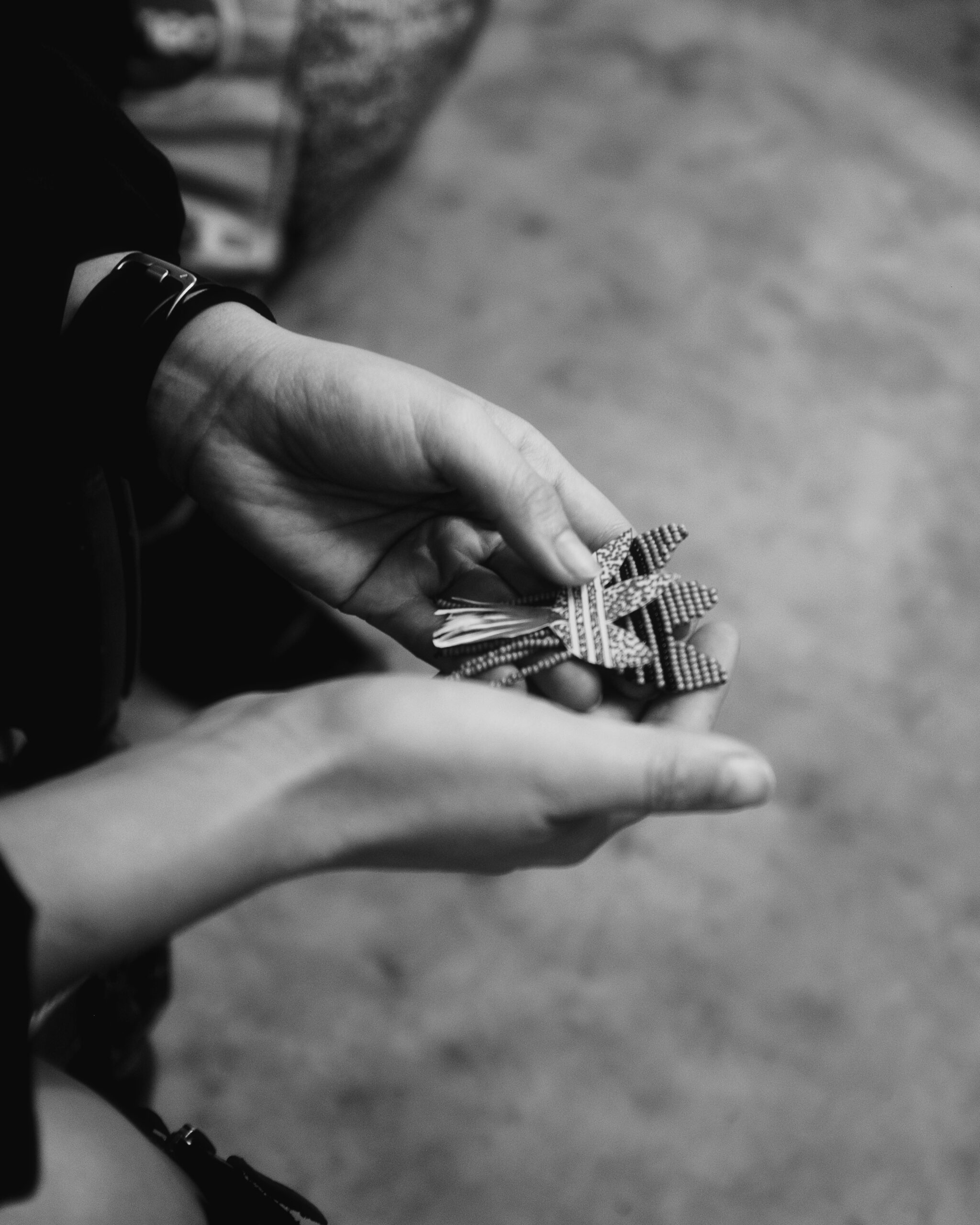
ADIDAS X MAZ
March 2024
In 2024, we held a creative lab in the Sibundoy Valley, Putumayo, with the collective Curarte to co-create the beaded adidas trefoil, part of the brand’s first fully handcrafted global collection and its first full collaboration with a Colombian designer.
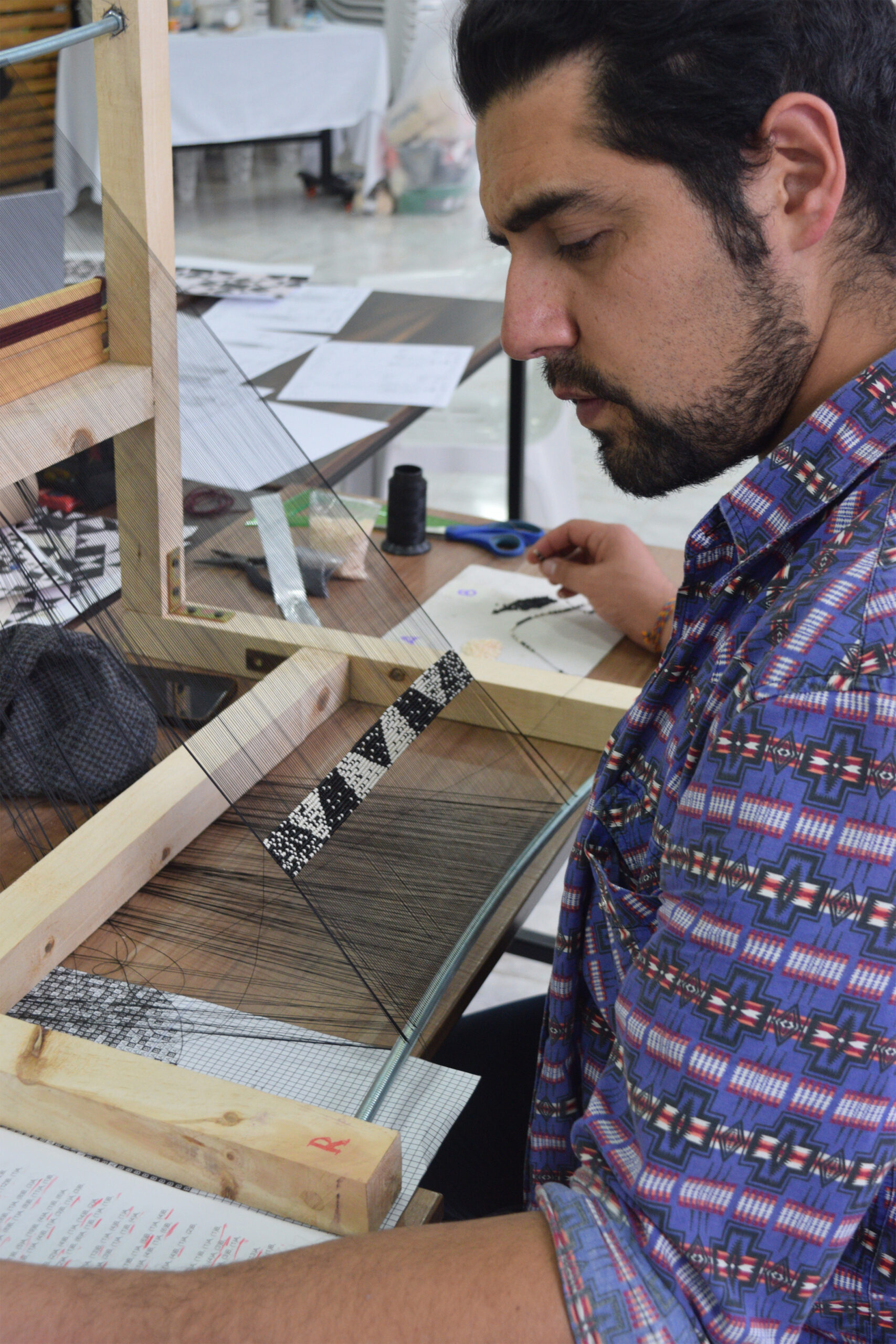
SOPÓ, CUNDINAMARCA
May 2024
In Sopó, Cundinamarca, we did a creative lab with five master artisans from three regions of Colombia, in collaboration with a Colombian NGO: Casa Social de la Mujer. This ongoing project explores ancestral techniques and material innovation to develop a new collection in progress.
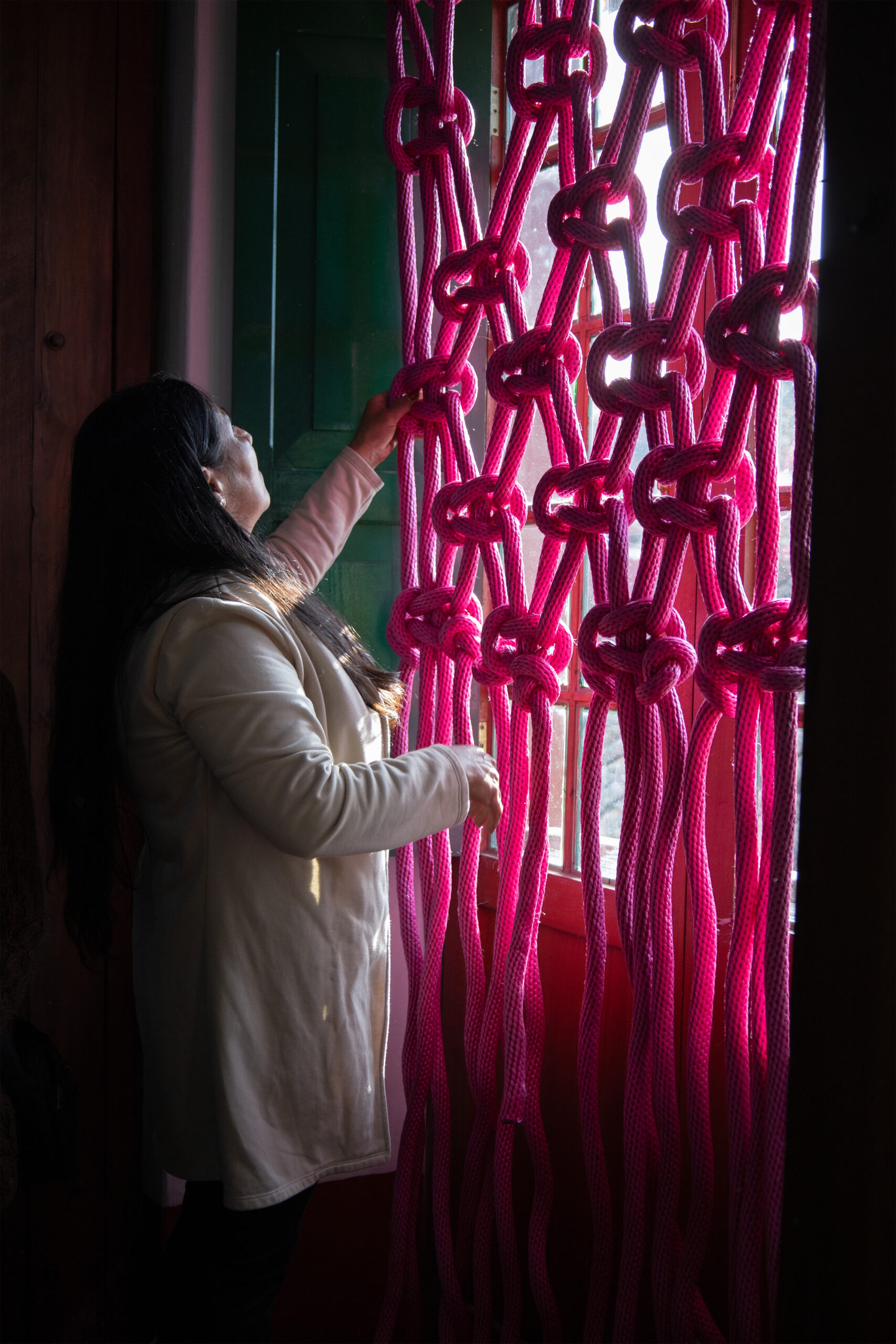
FILBo 2025
April 2025
We held a creative lab in Cogua, Cundinamarca, with 19 macramé artisans to co-create the large-scale mural for Spain, guest country at FILBo 2025 (the second- largest international book fair in Latin America).

ADIDAS X MAZ
March 2024
In 2024, we held a creative lab in the Sibundoy Valley, Putumayo, with the collective Curarte to co-create the beaded adidas trefoil, part of the brand’s first fully handcrafted global collection and its first full collaboration with a Colombian designer.
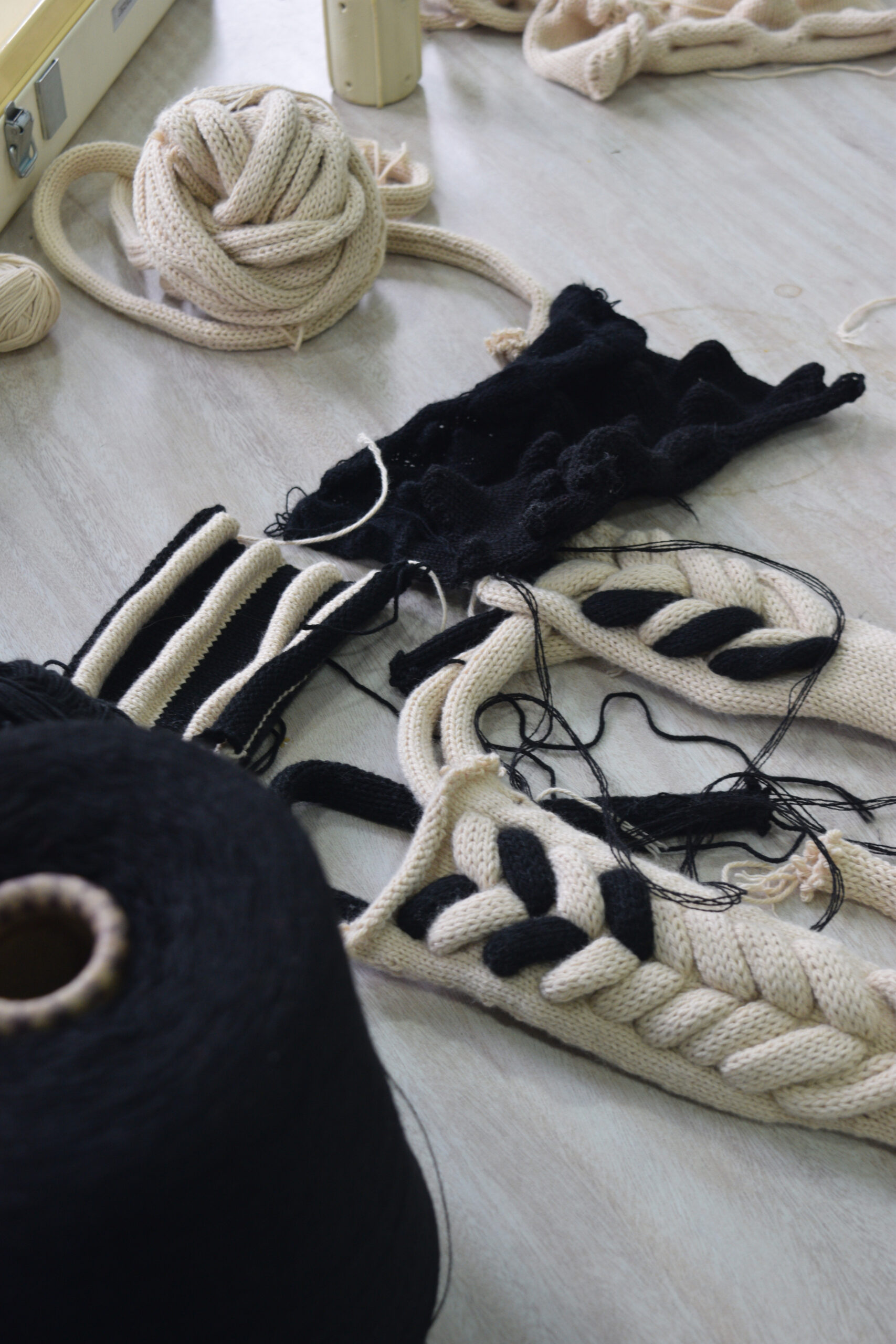
SOPÓ, CUNDINAMARCA
May 2024
In Sopó, Cundinamarca, we did a creative lab with five master artisans from three regions of Colombia, in collaboration with a Colombian NGO: Casa Social de la Mujer. This ongoing project explores ancestral techniques and material innovation to develop a new collection in progress.

MAZ | MANUELA ÁLVAREZ INSTITUTIONAL MANIFESTO
A FASHION COMPANY. A TEXTILE LABORATORY. AN ETHICAL VISION FROM LATIN AMERICA.
For over twelve years, MAZ has built something that goes beyond a brand: we are a Colombian, contemporary, and culturally conscious company that has become a reference in ethical sustainability within Latin American fashion. Our purpose is clear: to dignify artisanal knowledge through real collaborative processes, to create design with identity, and to generate social, cultural, and economic value from Colombia to the world.
We are not a foundation. And that matters. We are a structured company that has transformed the way art and fashion are created from the region. We’ve done this through a 360° sustainability model that encompasses co-creation with communities, full traceability, pedagogy, network building, and original textile development. This is not an assistentialist effort. It’s a solid business construction that generates employment, shared knowledge, and a new way of creating luxury with purpose.
We are a creative textile laboratory.
We don’t just design clothes: we develop textile innovation processes using ancestral techniques, applied with respect, intention, and quality. We’ve created products, collections, and original materials alongside over 850 artisans from eight regions of Colombia, with whom we’ve worked consistently for over a decade. Techniques include macramé, manual machine knitting, bead embroidery, horizontal and vertical loom weaving, leatherwork, ceramics, glass, and more.
Our model is built on co-responsibility.
The prices of each collaboration are defined by the master artisans who participate in our textile labs. These leaders in their technique decide the fair value of their work and are the same people who carry out final production. With this value pre-established, they invite other artisans and communities to join each project. This avoids extractive or vertical dynamics. We don’t impose rates. We don’t fragment processes. We accompany with continuity and respect.
We build community, networks, and legacy.
Those who worked with us on our first projects are still part of our network. They are the ones who invite their peers when the projects grow. This mutual trust has strengthened artisanal clusters, made endangered techniques visible, and activated intergenerational transmission of knowledge.
Radical transparency is a principle.
Our processes are fully documented and publicly available. We created the MAZ Artisanal Directory as a living traceability tool that shows the names, regions, techniques, and types of collaboration we’ve developed. Our digital platforms share each step of the process not as marketing, but as a shared and consented visibility exercise.
We educate, share, and strengthen the ecosystem.
We’ve developed over 25 educational programs for communities, designers, and institutions. These address cultural sustainability, creative identity, and self-sustainable models. A highlight was the program with the Government of Cundinamarca, which trained over 150 participants in project structuring and value creation through craft and design.
For us, luxury means time, technique, and living culture.
Our view of luxury is based on the intangible: on what takes time, on what holds history, on what is built with rigor and soul. We champion garments not led by trends, but by deeply human, collaborative processes.
We do not use symbols or imitate cultures. We create from shared present.
At MAZ, we don’t operate through appropriation. We design through dialogue. We apply ancestral techniques in their original and manual form, without distorting their meaning or origin. We don’t use sacred iconography or external cosmogonies. We use living technique—shared, respected, and transmitted by those who sustain it.
Our work has been recognized globally.
We were the first Colombian brand to speak at the United Nations, within the Fashion and Lifestyle Network, on cultural sustainability, regeneration, social impact, and ethical traceability in fashion. We were also finalists at the Latin American Fashion Summit as Impact Project of the Year. Our adidas x MAZ collaboration—more than 600 unique pieces crafted by over 60 families—was the first global artisanal collection in adidas history. All of this is the result of a model built with ethics, vision, and coherence.
This is our manifesto.
We are a design, culture, and sustainability company based in Bogotá. We work through humanity, technique, and radical transparency. And we will continue doing so with deep conviction.
MAZ is not just a brand. It is a living model that proves it is possible to create art and fashion from the roots, with respect, and real impact. We speak to an audience that values cultural identity and process. Our vision is global, sophisticated, and timeless—rooted in local, ethical impact.
Welcome to MAZ.
MAZ | Manuela Álvarez
*Cover image of the section: study board by Mateo Perea, leader of the artisan collective Tejidos Chakana, during our creative laboratory in Sopó, Cundinamarca in may 2025 with the NGO Casa de la Mujer.

